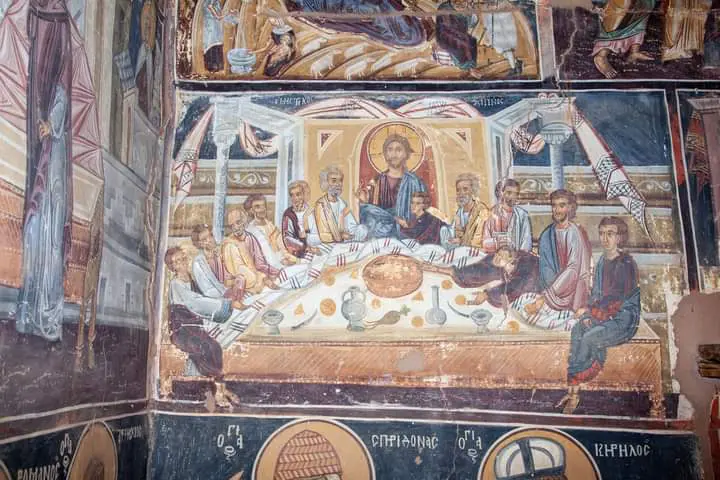On September 16 and 17, the residence of the Coptic Patriarch in the monastery “St. Bishoy’, Wadi el-Natrun (i.e. the Nitrian Valley), hosted a meeting of representatives of the Orthodox Churches of the world with the pre-Chalcedonian or ancient Eastern Orthodox Churches. This comes after a gap of about thirty-four years since the last meeting in 1990, under the late Coptic Patriarch Shenouda the Third. The purpose of the current meeting was to prepare the renewal of the dialogue between the two families of churches. During the meeting, the participants also discussed a number of religious and social issues in the field of church care and ministry under the motto “Christ’s love compels us” (2 Cor. 5:14).
Each church was represented by two members who were from Constantinople, Greece, Bulgaria, Russia, Romania, Cyprus, Jerusalem, Syria, Lebanon, Armenia, Poland, Egypt, Eritrea and Albania.
The meeting was opened with a welcome from Coptic Patriarch Theodore II and a message from Ecumenical Patriarch Bartholomew, which was read by his representative, Metropolitan Emmanuel of Chalcedon.
The participants agreed to continue meetings and mutual visits in the next period in order to support the ministry of the Orthodox Churches and to address the social challenges affecting the Christian family in all its forms. The co-chairs will visit the churches in the various countries and will inform them of the results of the theological dialogue at this time.
The resumption of the Orthodox-pre-Chalcedonian theological dialogue comes after the interruption of the dialogue between the Copts and the Roman Catholics, which was announced by the Coptic Church with its decision of March 2024. As a reason, the Copts highlighted the admission of a form of blessing of same-sex couples by the Roman Catholic Church.
This theme also found a place in the joint communique after the end of the meeting, in which the representatives of the Orthodox Church and the Pre-Chalcedonian Churches stated: “Our church families perceive the indissoluble and loving union between a man and a woman in holy marriage as a “great mystery” (Eph. . 5:32), reflecting the relationship between Christ and the Church, in contrast to some modern approaches to marriage. From this union arises the family, which is seen as the only basis for the birth and upbringing of children according to the divine plan. That is why our churches consider the family as a “small church” and provide it with appropriate pastoral care and support.
Our churches categorically reject the justification of same-sex relations within the framework of so-called “absolute human freedom” that causes harm to humanity. Our churches, by affirming their full faith in human rights and freedom, also affirm that the freedom of the created is not absolute to the extent of transgressing and violating the Creator’s commandments.
The communique also noted the common celebration of Passover next year: “As 2025 marks the seventeen hundredth anniversary of the First Ecumenical Council of Nicaea, and Christians around the world will celebrate Passover on the same date, the representatives of both families expressed their desire that all Christians around the world celebrate Easter following the canonical tradition of Nicaea and the Orthodox Paschalia”.







